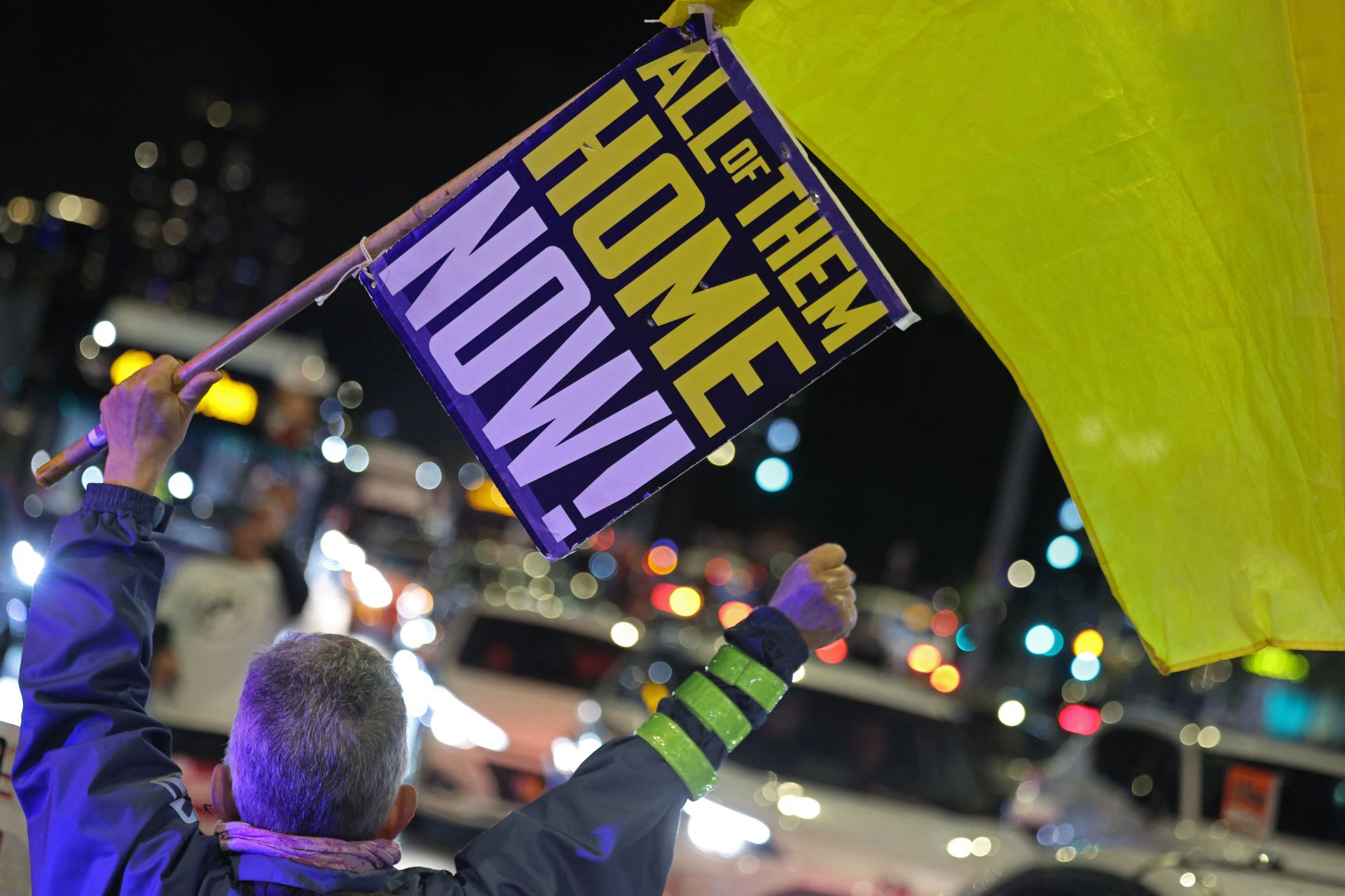- Home
- War in the Middle East
- Hamas to Free Four Israeli Female Soldiers on Saturday

A demonstrator takes part in a protest calling for the release of Israeli hostages held in Gaza since the October 7, 2023 attacks, in front of the Israeli Defense Ministry, in Tel Aviv on January 23, 2025, after a ceasefire deal in the war between Israel and Hamas. ©Jack Guez / AFP
Hamas’s military wing, the al-Qassam Brigades, has confirmed plans to release four Israeli female soldiers on Saturday, as part of the ongoing Gaza ceasefire agreement. The announcement came on Friday, with Israel quickly acknowledging the names of the hostages, all of whom are aged 19 to 20. The four women are identified as Karina Ariev, Danielle Gilboa, Naama Levy, and Liri Albag, according to The Times of Israel.
Abu Obeida, spokesperson for the al-Qassam Brigades, made the announcement via Telegram, stating, “As part of the prisoners’ exchange deal, the brigades have decided to release four female soldiers tomorrow.” Shortly after, Israeli Prime Minister Benjamin Netanyahu's office confirmed receiving the names of the hostages through intermediary channels.
A Delayed Release: Arbel Yehud’s Status
Adding to the complexity, Israel had previously informed Hamas that Arbel Yehud, a civilian hostage, should be included in this round of releases. Yehud is among the 33 hostages initially set to be freed in the first phase of the ceasefire deal. However, it’s believed that she is currently held by the Palestinian Islamic Jihad, not Hamas, which raises fears of a delay in her release. Yehud’s case highlights the tangled nature of hostage negotiations, with different factions within Gaza playing a role in the fate of those held captive.
Alongside Yehud, civilian hostages such as Silberman Bibas are also in captivity. Meanwhile, soldiers like Ariev, Albag, Gilboa, and Levy are set to be freed as part of this agreement. Bibas’s young children, Ariel (5) and Kfir (2), along with her husband Yarden, are also among those on the list for release.
The Bigger Picture: A Prisoner Exchange Deal
The release of these hostages is part of a broader deal that will see the Israeli government free 50 Palestinian prisoners in exchange for each female soldier released. Of these prisoners, 30 are serving life sentences for terrorism-related offenses. This exchange is viewed as one of the most significant aspects of the ceasefire, as it represents a high-stakes bargaining chip for both sides.
Earlier this week, Israel completed a similar exchange, releasing 30 prisoners for each of the three civilian female hostages—Romi Gonen, Emily Damari, and Doron Steinbrecher—who were freed by Hamas. The ongoing exchange reflects both the fragility and hope inherent in the ceasefire process, as each release is met with intense scrutiny, not just in the media but from the families of those involved.
A Fragile Peace
As this latest phase of the ceasefire unfolds, all eyes are on the continued negotiations between Hamas, Israel, and the mediators working to navigate this complex web of political and humanitarian concerns. The release of hostages, while a sign of progress, is also a reminder of the underlying challenges in securing lasting peace in the region.
Read more



Comments